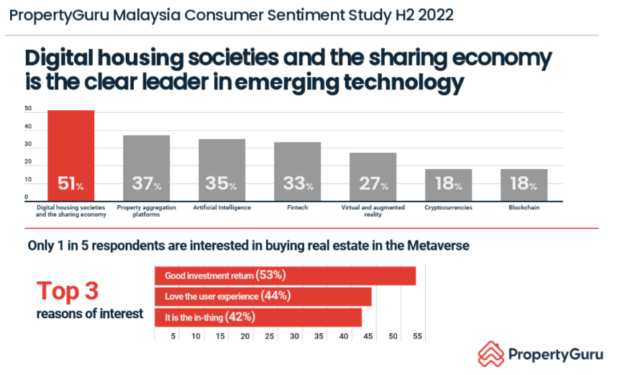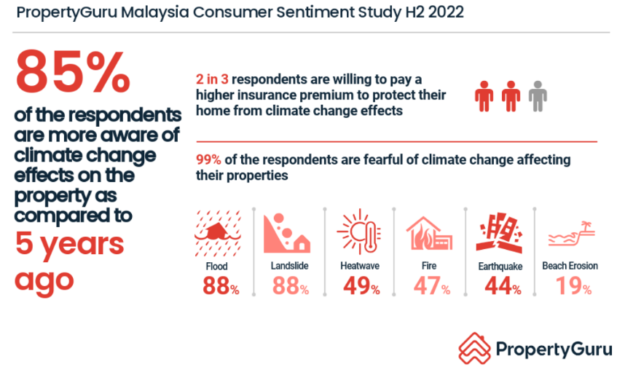A NEW study has found that potential homebuyers do not think they are qualified for affordable public housing schemes or can afford to purchase properties without financial assistance, underscoring affordability issues amid growing inflation and rising costs of living.
According to PropertyGuru, such sentiments – expressed by 51% of respondents – may continue to remain the norm after the overnight policy rate (OPR) increased by 25 basis points and the Consumer Price Index (CPI) rose to an ultimate high of 4.4% year-on-year (yoy).
Even so, 73% of respondents in the property marketplace’s Consumer Sentiment Study for the second half of 2022 (H2 2022) said they have a clear understanding of eligibility terms for affordable housing, indicating that potential homebuyers may continue to be on the lookout for Government housing initiatives regardless.
PropertyGuru Malaysia country manager Sheldon Fernandez said with the ongoing recession, inflation, price hikes and OPR increase, the group expects potential homebuyers to continue the “wait-and-see” approach until the overall cost of living has “stabilised”.
“With the Budget 2023 announcement coming up soon, we are hopeful that there will be allocations that can help spur the property market and aid those that are planning to embark on their homeownership journey,” he added in a statement announcing the study findings today.

He noted that the findings of the survey – polling 801 mostly mid to high-income individuals through an online questionnaire – also indicated that more than 69% of respondents plan to buy a house if the Home Ownership Campaign (HOC) is revived.
Emerging tech continues changing large purchasing behaviours
The study further found that over half of respondents believe that emerging technologies such as artificial intelligence (AI), property aggregation platforms and digital housing societies would be helpful in their homeownership journey.
This continues the trend observed during a similar study conducted in H1 2022 which found that two out of three Malaysians would be comfortable with shortlisting and viewing properties online while one in four would be comfortable signing agreements online.
It also signals that consumers have become more tech-savvy following the reliance on digital transactions during the COVID-19 pandemic and technology will continue to play a major role in the property market.
Besides that, the survey found out that potential homebuyers have started to consider purchasing property in the metaverse – a trend that is likely to continue, according to PropertyGuru, as consumers in Malaysia have adapted well to digital solutions and platforms more than ever over the past two years.

Environmental impact now on potential homebuyers’ minds
Meanwhile, the study also indicated that homebuyers are concerned with how flash floods and landslides will impact properties in the long run, in light of several areas across the country facing such disasters in the past year.
A total of 92% of the respondents in the study highlighted flooding as their main concern, while 83% were concerned about landslides.
“While the location has always been one of the key considerations for home seekers in Malaysia, we will now see more people increasingly prioritise this due to the flooding events in the past year,” said Fernandez.
In line with this trend, 66% of respondents are willing to pay a higher insurance premium on their property to cover climate change effects.

On the other hand, with environmental consciousness recording an upward trend, Fernandez said consumers are now looking at sustainable homes and features as key considerations when purchasing a home.
Additionally, respondents consider solar panels, rainwater harvesting and food waste composting as important features to have in the future.
On top of this, one in three respondents in the higher income group are keen to pay more for a property with Electric Vehicle (EV) charging ports.
“The higher awareness of eco-friendly facilities and features is likely linked to ongoing climate change issues as well,” Fernandez opined.
“Consumers are now more conscious of current issues and are now making eco-friendly decisions in hopes of making a change.” – Sept 8, 2022
Main pic credit: HedgeThink









